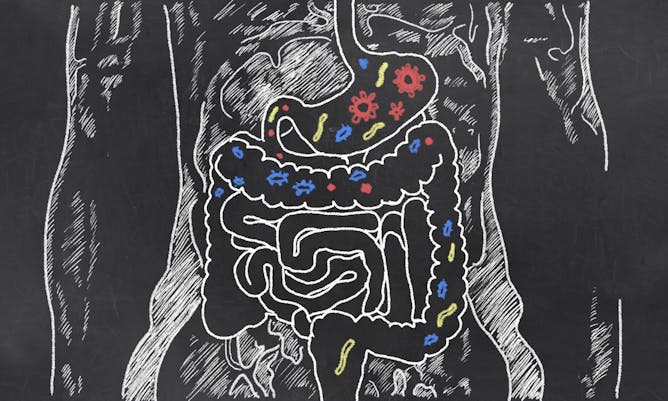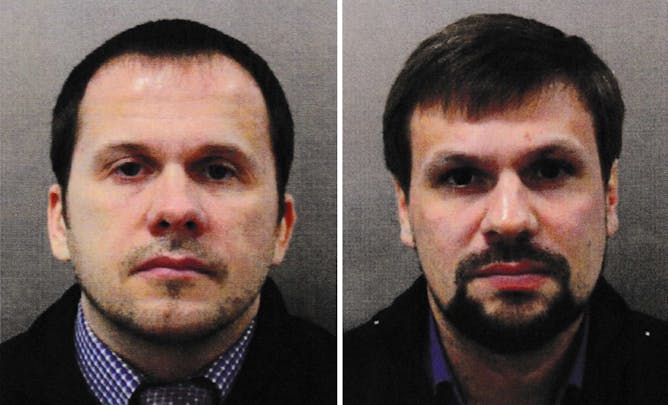|
|
|
Editor's note
|
|
Alexander Fleming discovered penicillin 90 years ago this month. Since then, antibiotics have saved countless lives, but overusing them puts lives at risk by creating antibiotic-resistant strains of bacteria. Alastair Hay explains why he is optimistic about the future of this precious resource. If antibiotics kill bacteria, then probiotics encourage their growth – the good ones, that is. Ana Valdes looks at new
research in the area.
Rainforests can be forbidding places: tangled, dark and full of potential threat. For this reason, it has long been assumed that humans only started living in them fairly recently, after the development of agriculture. But, as Eleanor Scerri explains, new research indicates that hominids may have been living in African rainforests as long as 100,000 years ago – and this could even have contributed to how we evolved.
An anonymous New York Times op-ed by a "senior Trump staffer" has sparked frenzied speculation about the author's identity, and met with furious criticism from the president himself, who accused whoever wrote it of "treason". Andre Spicer has some advice for political staffers saddled with unmanageable bosses.
And the UK government has named two Russians as prime suspects in the Skripal case. Dan Lomas reports that their apparently brazen approach suggests Russian state-led intelligence services do not seem to care whether they are discovered or not.
|
Clint Witchalls
Health + Medicine Editor
|

|
|
Top stories
|

T. L. Furrer/Shutterstock.com
Ana Valdes, University of Nottingham
Many probiotic bacteria don't manage to colonise the gut, but that doesn't mean they don't have positive health benefits.
|

Shutterstock
Alastair Hay, University of Bristol
Alexander Fleming's work has helped countless people over the last nine decades.
|

Oleg Znamenskiy/Shutterstock.com
Eleanor Scerri, University of Oxford
Rainforests may have played far more of a role in shaping human evolution than previously thought.
|

Bob Woodward arrives at Trump Tower, January 2017.
EPA/Albin Lohr-Jones
Robert E Gutsche Jr, Lancaster University
Bob Woodward's supposedly explosive findings about Trump are not what we need.
|

Undated handout photo issued by the Metropolitan Police of Alexander Petrov (left) and Ruslan Boshirov.
Metropolitan Police/PA Wire/PA Images
Dan Lomas, University of Salford
The Skripal case shows how Russian intelligence services have the confidence to carry out shoddy operations, seemingly unconcerned about whether or not they will be discovered.
|
Politics + Society
|
-
Sarah Page, Staffordshire University
The synthetic drug Monkey Dust is causing mounting concern in Stoke-on-Trent – but how widespread is its use?
-
Anamaria Dutceac Segesten, Lund University
The anti-immigration, pro-Swexit party could take up to 21% of the vote this weekend.
-
Andre Spicer, City, University of London
Quietly fighting from within is just one way for staffers to rein in an out-of-control leader.
|
|
Business + Economy
|
-
Francesca Froy, UCL
Buttons are just one part of a steady hollowing out of the UK’s manufacturing supply chain since the 1970s.
-
Billy Hare, Glasgow Caledonian University
Council's approach to risk management has added insult to injury for the residents and businesses adjacent to the Mackintosh.
|
|
Science + Technology
|
-
John E. Hallsworth, Queen's University Belfast
Studies from our own planet shed light on whether there could be life in a subglacial lake on Mars.
-
Ingvild Bode, University of Kent
The debate on autonomous weapons isn't paying enough attention to the technology already in use.
|
|
Health + Medicine
|
-
Kamran Siddiqi, University of York
A common smoking cessation drug doesn't appear to work for shisha smokers.
-
Florian Siebzehnrubl, Cardiff University
Symptoms for Huntington's disease typically only start to be experienced in mid-adulthood.
|
|
Environment + Energy
|
-
Alona Armstrong, Lancaster University
Scientists have modelled the effects of huge hypothetical energy projects in the desert.
-
António Carvalho, Heriot-Watt University
The case for pragmatism, not dogma.
|
|
Cities
|
-
David Bamford, University of Huddersfield; Marcus Mayers, University of Huddersfield
It can feel much faster to get the bus – but that could all be a matter of perspective.
|
|
Education
|
-
Gwilym Siôn ap Gruffudd, Bangor University
There is a stigma attached to free school meals that causes parents to abstain from claiming them
|
|
Arts + Culture
|
-
Natalie Braber, Nottingham Trent University
Remembering the powder monkeys, sparkies and dinters and their remarkable linguistic legacy.
|
|
| |
Featured events
|

|
Martin Harris Centre for Music and Drama, University of Manchester, Oxford Road, Manchester, Manchester, M13 9PL, United Kingdom — University of Manchester
|

|
Martin Harris Centre for Music and Drama, University of Manchester, Oxford Road, Manchester, Manchester, M13 9PL, United Kingdom — University of Manchester
|

|
National Centre for Writing, King Street, Norwich, Norfolk, NR1 1QE, United Kingdom — University of East Anglia
|

|
St Helens Road, Ormskirk, Lancashire, L39 4QP, United Kingdom — Edge Hill University
|
|
|
|
| |
| |
| |
| |
| |
|
|
|
|
|
|
|